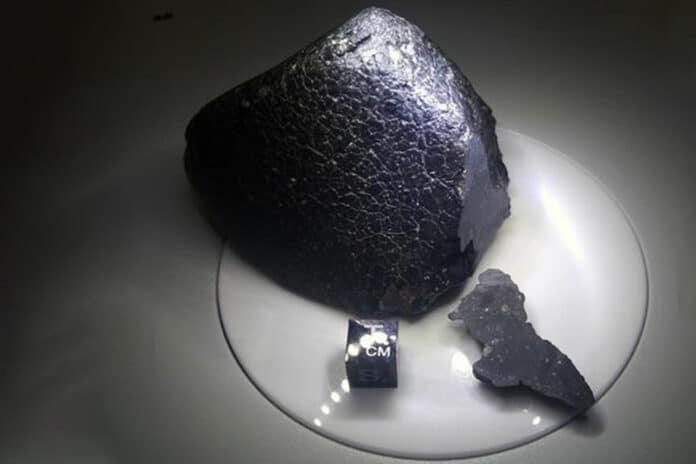Meteorites provide vital information that we can’t get anywhere else. Scientists rely on them for information about the history of our solar system.
Meteorites are space rocks that pierce through the Earth’s atmosphere and hit the Earth as meteorites. These solid pieces of debris are fragments of asteroids and comets which can land anywhere on the Earth.
These extra-terrestrial fragments can resemble Earth rocks, but since most meteorites contain metallic iron, a magnet will often stick to them. So meteorite hunters, collectors, and curators often rely on magnets to verify a meteorite’s identity.
But now, MIT has warned meteorite hunters to refrain from using magnets to test the authenticity of their finds.
Study by MIT has found that testing meteorites with magnets has destroyed valuable information by erasing their magnetic memory
Although the use of hand magnets on a meteorite may increase the chance of it reaching scientists, they wipe the original orientation and any trace of its magnetic memory.
For the study, MIT researchers analyzed a meteorite nicknamed Black Beauty or Northwest Africa (NWA) 7034. Black Beauty was found in 2011 in the Sahara Desert.
Multiple shards of this black meteorite have been found all over northeast Africa. Scientists estimated them to be 4.4 billion years old, which was the time when Mars had water and magnetic field.
Researchers found that many shards from Black Beauty had been re-magnetized on Earth. This not only erased their ancient Martian magnetic field but also introduced misleading false data that can lead to scientific dead ends.
Scientists Ask Meteorite Hunters to Stop Using Magnets on Meteorites to Preserve Their Magnetic Memory
By: | May 13th, 2023

Image by MIT
More articles from Industry Tap...






